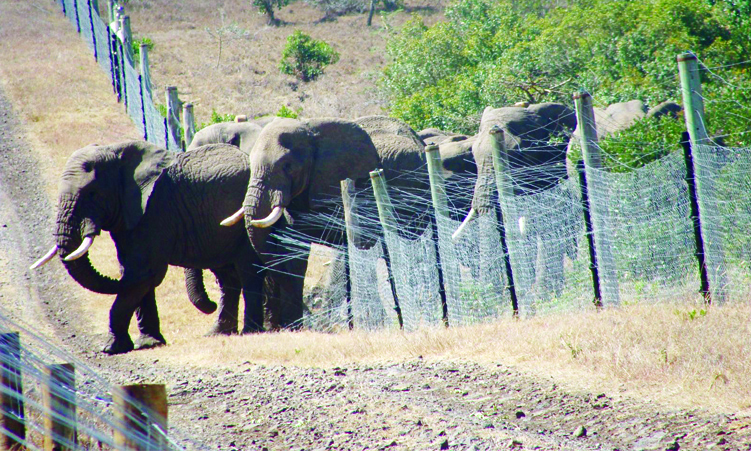Between january and July of every year, subsistence farmers are often found arguing over their crops consumed by neighbours’ domestic or stray animals.
Such disputes are often referred to traditional authorities for adjudication, and in some cases the victims of dissipated crops take revenge by subjecting such animals to cruel treatment.
Sometimes these animals are locked up, and their owners would have to beg for their release, with some landowners demanding payment as compensation, while others end up engaging in endless quarrelling.
By law such crop farmers are guilty of cruelty to animals, which carries a punishment of imprisonment or a fine.
These subsistence farmers have legal recourse in the form of damages claims.
The law of damages, which is a private law, provides that a complainant may seek compensation from the wrongdoer through the courts.
A complainant may, however, not punish innocent animals involved in damaging crops.
We, including the authorities, need to differentiate between the elements of a crime and the elements of a delict, which is governed by the rules of civil procedure.
For example: In criminal law a person can be found guilty or liabile for a crime only if his/her conduct contain the elements of a crime.
Such an act or conduct should be unlawful, and the wrongdoer should be capable of committing a crime.
In civil or private law of damages as associated with delicts, the elements required are that there must be an act or conduct in the form of fault, culpability of performance and subsequently causing loss to another.
People should know exactly what kind of conduct is criminal so that they are able to avoid committing crimes.
Thus the action available to the landowner (subsistence farmer) whose crops have been damaged by animals is what is known in Latin as actio de pastu.
Actio de pastu is a civil action which can be instituted in a court of law by a plaintiff against a defendant – in this case the legal owner of the animals that damaged the plaintiff’s crops.
Similarly, if domesticated animals, such as dogs, are found to have attacked a passer-by while on their own on an open veranda, such animals cannot be punished, because they are not human beings.
The lawful owner of such animals, however, may be held liable through a civil procedure using an action known as actio de pauperie.
The owner of such animals can be held criminally liable if it can be proven that they were negligent by omission, such as failing to keep their animals on their property by not closing a gate, for example.
Incidents of dogs like pitbulls being put down by the authorities have been reported in Namibia, but legally it is wrong to punish an animal.
The legal process available in law should rather have been followed.
Therefore, traditional authority leaders, community activists, as well as regional councillors should start educating their subjects on the correct procedures to be followed should a complaint of crops damaged by animals arise.
They should not resort to cruelty to animals, as it is punishable by law.
Villagers should also understand that nobody would deliberately send their animals to destroy another person’s crops.
Animals cannot commit crimes, only human beings can.
Lucas Tshuuya
Stay informed with The Namibian – your source for credible journalism. Get in-depth reporting and opinions for
only N$85 a month. Invest in journalism, invest in democracy –
Subscribe Now!






